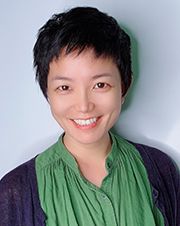Listening to Singapore: Harvesting urban noise for space, water, and hazard mitigation
OR
SEG members, view the course for free!
Format: Virtual Webinar. 45 min. presentation followed by 15 min. Q&A
An optional post-lecture workshop will immediately follow each lecture for expanded Q&A and networking
Please note that two sessions will be given on different dates listed below.
Session 1, Thursday, March 10, 2022, 9 am to 10 am Beijing Time
Session 2, Wednesday, April 20, 2022, 4 pm to 5 pm India Time
Past SEG Recordings SEG Members Free Access Details
Two live sessions are completed. Please scroll down to watch the videos from the recordings below. SEG members, view the course for free!
Abstract
Today, more than half of the world's population lives in urban areas with a projected growth to over two-thirds in 2050. The city-state of Singapore faces the challenges of supporting a sustainable urban system with a growing population in a limited land, sea, and air space. The only direction to develop is toward the subsurface. Conventional geophysical methods are not applicable because of their disruptions to urban activities, a deteriorated performance due to strong anthropogenic interference, and unsatisfying spatial and temporal resolution. In this seminar, we present recent advances in passive sensing to harvest the urban noise from traffic, construction, and ocean waves with small, dense arrays. We design novel signal processing techniques that turn urban hum into rich information of the urban system, both above and below the surface. The resulting meter-scale spatial resolution and minute-scale temporal resolution are the cornerstones to meeting engineering demands in urban environments. We present newly-developed fiber sensing technology using existing dark fiber infrastructure that has the potential to enable a million-sensor system underneath each major city around the globe. Applications of these techniques in shallow bedrock mapping, deep aquifer identification, and near-surface monitoring for geohazards provide the opportunity for geophysicists to contribute directly to urban society in planning, managing, and monitoring its space, water, infrastructure, and other resources.


Your Instructor

Dr. Yunyue Elita Li recently joined the Department of Earth, Atmospheric, and Planetary Science at Purdue University as a Mary J. Elmore New Frontiers Associate Professor in Data Science since August 2021. Before that, she worked in the Department of Civil and Environmental Engineering at the National University of Singapore as an assistant professor since 2016. Elita did her postdoctoral research at the Massachusetts Institute of Technology, holding a joint position in the Earth Resources Laboratory and the Department of Mathematics. She received her PhD and M.S. degrees in geophysics from Stanford University in 2014 and 2010, respectively. She obtained her B.S. degree in Information and Computational Science from China University of Petroleum, Beijing in 2008. Elita’s research group works on geophysical applications in urban environments for smart cities and sustainable developments. By integrating geophysical inversion techniques, ambient noise data analysis, and distributed sensor networks, her group focuses its research efforts on the development of non-invasive, high-resolution, and real-time systems to solve pressing challenges in space, water, security, and sustainability. Elita was the recipient of the J. Clarence Karcher Award from SEG in 2018 and was nominated as the SEG South & East Asia Honorary Lecturer for 2022.
